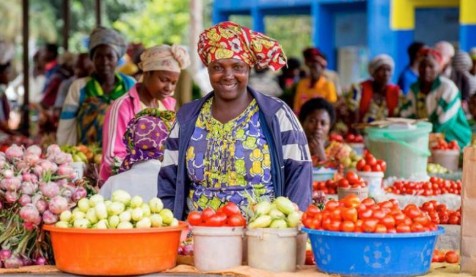A coalition of women entrepreneurs has appealed to the government and financial institutions to allocate at least 40 per cent of Micro, Small and Medium Enterprise (MSME) loans specifically to women-owned businesses.
The group also urged the government to introduce and enforce gender-responsive financial reforms through inclusive policy-making.
According to a statement issued on Monday in Abuja by the media officer, Ms Hannatu-Asheloge Osifeso, no fewer than 2,500 Nigerian bank customers have signed a petition calling for increased funding for women entrepreneurs.
The coalition had previously launched a nationwide campaign on April 23, aimed at addressing the financial exclusion faced by women entrepreneurs.
It noted that in spite their contributions to Nigeria’s economy, women remain largely underserved, receiving less than 10 per cent of small business loans.
This figure, it argued, stands in stark contrast to women’s proven track record of loan repayment and financial discipline.
The coalition called on financial institutions, government agencies, and other relevant stakeholders to dismantle systemic barriers and take proactive steps to improve women’s access to credit.
It stated that its ongoing campaign seeks to create more equitable financing opportunities for women in business.
The group noted the disparity in access to capital and urged banks to modernise their lending practices by adopting inclusive models that reflect current economic realities.
Nigeria: Nigerian fashion
“Analysis of the petitions submitted through the WeeWantMore.ng campaign platform revealed that GTBank, Access Bank, and Fidelity Bank were the most frequently named institutions by customers across Nigeria.
“This indicates growing public concern over the exclusion of women-led businesses from mainstream financing”.
The coalition further noted that outdated collateral demands such as requiring proof of ownership of landed property continue to hinder women’s access to credit.
Quoting insights from industry experts, the coalition said financial institutions are operating with outdated frameworks that perpetuate gender bias in lending.
Nigeria: Nigerian fashion
Mojisola Hunponu-Wusu of Woodhall Capital noted that although women repay 95 per cent of their loans, they receive less than 10 per cent of SME financing.
She urged the Central Bank of Nigeria (CBN) to take concrete action.
The coalition called on the CBN Governor to make a public commitment to setting a minimum 30 per cent gender-based MSME lending target for commercial banks to help bridge the funding gap.
Supporting this stance, Habibah Waziri, Managing Director of BGR Consulting, noted that 34 per cent of Nigerian women aspire to grow their businesses, but continue to face systemic obstacles.
“Nigerian women drive half of the nation’s economy, yet less than 10 per cent of SME funding is allocated to them. Closing this funding gap is vital for economic development and gender equity,” she said.
The coalition also demanded that policymakers commit to structural changes by establishing dedicated credit schemes for women and simplifying loan requirements using alternatives like cash flow-based financing.
Joy Una, a leading voice in the WEEWantMore campaign, said it is indefensible for banks to continue relying solely on traditional collateral requirements when more inclusive, cash flow-based lending systems can serve credible women entrepreneurs.
“What we’re witnessing is not only exclusion, it’s a missed economic opportunity.
“Institutions that modernise their approach stand to benefit from loyal customers, improved loan repayment rates, and long-term growth,” the coalition said.










